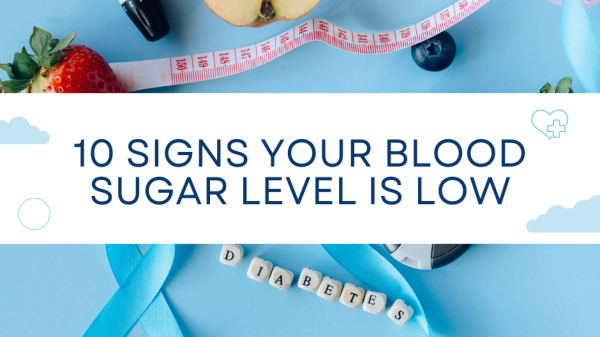

It takes a village to raise a child. In the same way, it takes a village (i.e., a lot of people) to help a person in need with managing their diabetes! Because diabetes is such a complicated condition, you’re going to need all hands on deck to ensure you still live a long and relatively normal life even with diabetes.
These are the ten people you need who will help you with managing your diabetes.
1. Primary Care Physician
A primary care physician is a doctor you normally go to for regular, routine check-ups. They act as a central coordinator or manager by referring you to an endocrinologist (explained below), following up on your progress, treating any side effects of diabetes, and taking note of all your new medications. It’s like having a personal assistant with your health, and they’re one of the most important people you need for managing diabetes!
2. Endocrinologist
An endocrinologist is a doctor that specializes in the endocrine system or the hormone system of your body. Typically, these are the people that will actually diagnose your diabetes since they are trained on endocrinological disorders specifically.
Endocrinologists will assess your diabetes and determine what kind of medications you need. They will also advise on what to do and what to eat.
Since diabetes is a permanent and lifelong disease, you’re going to be stuck with your endocrinologist for a long time. So, make sure the one you choose is someone you click with very well. You will need these people many times in your life for managing and controlling your diabetes.
3. Pharmacist
Diabetes involves a lot of medications to help keep your diabetes and its side effects in check. You need to know when and with what to take them. You also need to know how to administer them whether it’s by injecting or taking them orally or applying them topically. Lastly, you need to know if these medications will work with whatever else you’re taking—some medicines aren’t meant to be taken together.
This is where a pharmacist comes in. They can help you learn more about your medicines and how to take them properly. They can also help save you money in the long run by recommending cheaper options.
4. Dietitian
The main thing you have to do now that you have diabetes is switch to a diabetes-friendly diet. However, you shouldn’t just jump into any diet like the ketogenic diet or intermittent fasting willy-nilly. If you do, you can end up gaining more weight or slowing down your metabolism!
A dietitian can help you healthily adjust your dietary needs. They can recommend foods that will not only keep your diabetes in check but will also keep side effects like elevated blood pressure and weight gain in check.
5. Certified Diabetes Care and Education Specialist
These people are healthcare professionals that specialize in diabetes. Unlike a primary care physician, you’ve got more time to spend with a certified diabetes care and education specialist (CDCES), and they’re able to provide you with specialized treatments and advice. Since many of them are also dietitians, they can also give you meal plans or advice on healthy eating habits that suit your goals.
When diagnosed with diabetes, your PCP will often recommend a CDCES to you. If you haven’t been recommended one, you can find some in your local area here.
6. Dentist
It’s surprising how diabetes can mess things up for your teeth and gums. For starters, it can cause cavities because there’s more sugar in your blood sugar levels. It can also cause gingivitis and eventually periodontitis due to a weakened immune system that can’t fight infections very well. Thankfully, these conditions can all be managed as long as you manage your diabetes well.
Nonetheless, your dentist can help prevent any mouth conditions from getting any worse with routine check-ups.
7. Podiatrist
One sad complication of diabetes is problems with the lower extremities, particularly the legs and feet. High blood sugar levels cause nerve damage in your feet, which can cause numbness, tingling, and sometimes pain in your feet. Eventually, you lose any sense of feeling in your feet, making it hard to notice if you’ve got wounds there. These wounds then get infected, and the infection can’t heal well enough due to blood vessel and nerve damage. Eventually, the leg could get amputated!
It’s important to visit a podiatrist (i.e., a foot doctor) to prevent this from happening.
8. Ophthalmologist
Another one of the many complications of diabetes is vision problems. Uncontrolled blood sugar levels can cause diabetic retinopathy by damaging the fragile blood vessels in your eyes. These blood vessels then swell and eventually leak, causing permanent damage to your eye. Beyond that, other vision problems you can get are diabetic macular edema, cataracts, and glaucoma.
The Centers for Disease Control and Prevention (CDC) highly recommend people with diabetes get an annual eye exam.
9. Your Loved Ones
Diabetes is a tough condition to manage, but you don’t have to deal with it alone. You should let your trusted people know that you have diabetes so they can offer you support and lend a helping hand whenever you are in need of help in managing diabetes. They can also make adjustments in their routine for you, such as offering a diabetes-friendly meal whenever you visit their house for dinner.
10. Support Groups
Besides having your family, friends, and loved ones around you for support, strangers who are going through the same ordeal as you can also give you comfort and solace. Who knows? You might even make some lifelong friends by joining diabetes support groups!
And since the advent of COVID, many support groups these days meet up virtually. You can find support in the safety and comfort of your own home. We recommend visiting the American Diabetes Association’s community support channel here.



